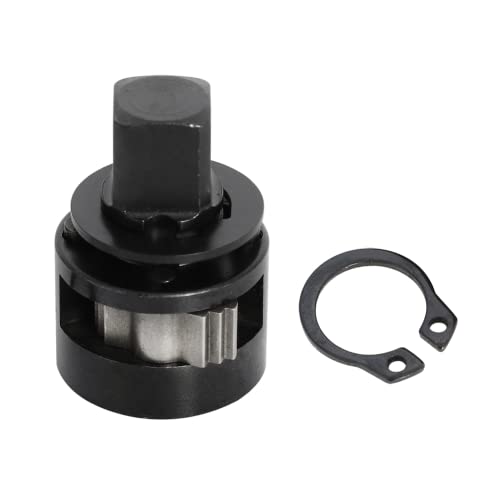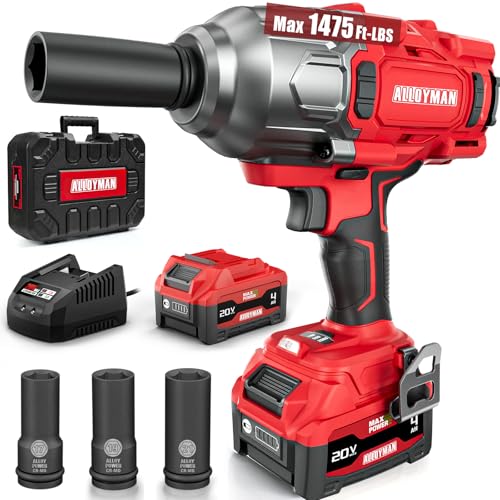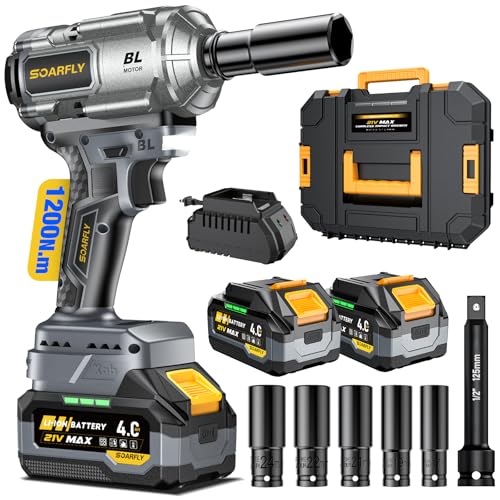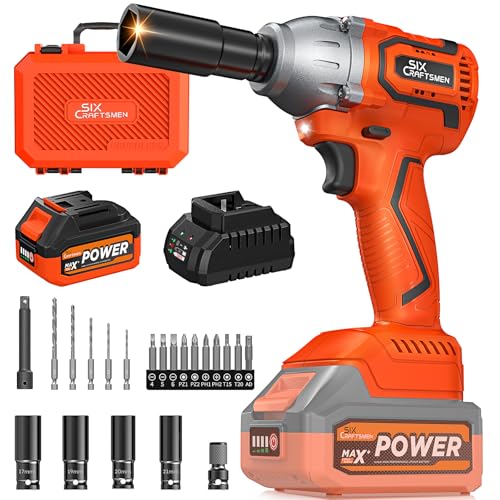There’s a specific, sinking feeling every mechanic, technician, and serious DIYer knows well. It’s the moment a trusted tool—one that has been your go-to for countless jobs—gives up the ghost. For me, it was my beloved Milwaukee M12 3/8 ratchet. Mid-way through a timing belt job, buried deep in an engine bay, the anvil head started slipping, the socket retention failed, and what was once a precision instrument became a frustrating paperweight. The cost of a brand-new M12 ratchet is significant, and the downtime is even more costly. My immediate thought wasn’t replacement, but repair. That’s what led me down the rabbit hole of service kits, searching for a solution that could get my tool back in the fight without breaking the bank. This search ultimately led me to the EVIMOTAL m12 3/8 Fuel Head Rebuild Kit, an aftermarket part promising an exact fit and a new lease on life for my tool. The question was, could this affordable alternative truly stand up to the rigors of professional use?
- Ratchet head anvil repair kit 42-06-1030 fits for ratchet.
- The ratchet repair kit 42-06-1030 Kit is manufactured with high precision instruments, it has...
What to Consider Before Buying Power Tool Repair Parts
A power tool repair part is more than just a piece of metal; it’s a critical component that determines the reliability, safety, and performance of your entire investment. When a professional-grade tool like a cordless ratchet or impact wrench fails, a high-quality service kit can be a brilliantly cost-effective solution, saving you hundreds of dollars over a full replacement. It allows you to restore the tool to its original factory performance, extending its service life and maximizing your return on investment. However, the wrong part can lead to catastrophic failure, potential injury, and more downtime than you started with. It’s a gamble where the stakes are your productivity and safety.
The ideal customer for a product like this is someone with a degree of mechanical aptitude who is comfortable disassembling their power tools. They are budget-conscious but understand that the goal is to restore function, not just apply a temporary patch. This type of product might not be suitable for those who rely on their tools for mission-critical daily income and cannot afford any risk of failure, or for individuals who are not confident in their ability to perform the repair correctly. For them, purchasing a new tool or paying for an authorized service center repair, while more expensive, offers peace of mind and a warranty.
Before investing in any aftermarket service kit, consider these crucial points in detail:
- Dimensions & Fitment: This is the absolute first hurdle. The part must be machined to precise tolerances to fit your specific tool model. Poor fitment can lead to internal damage, improper operation, and premature wear on other components. Always double-check that the part number (in this case, 42-06-1030 for models 2457-20 and 2457-21) is an exact match for your needs.
- Performance & Specifications: The rebuild kit should, in theory, restore the tool’s original performance metrics. This means the anvil must handle the specified torque, the directional switch must engage positively, and the socket retention mechanism must be secure. Any compromise in these areas negates the purpose of the repair and can turn a powerful tool into a dangerous one.
- Materials & Durability: This is arguably the most critical factor for an internal power tool component. Is the part made from hardened alloy steel equivalent to the original, or is it a softer, cheaper metal? The finish, such as powder coating or black oxide, can also impact corrosion resistance. A part that wears out in a month is not a solution; it’s a recurring problem.
- Ease of Installation & Maintenance: A good service kit should be a direct, drop-in replacement with no modification required. The process should be straightforward for a competent user. Once installed, it shouldn’t require any special maintenance beyond the normal care you give your power tools. However, a poorly designed part can make a simple repair an hours-long ordeal.
Choosing the right path—repair or replace—is a major decision for any tool user. When a key piece of equipment goes down, you need a solution you can trust.
While the EVIMOTAL m12 3/8 Fuel Head Rebuild Kit presents itself as a viable repair option, it’s wise to understand the broader landscape of power tools. For a comprehensive look at top-tier tools that deliver reliability from day one, we highly recommend checking out our complete, in-depth guide:
Our Complete Rundown of the Best 1/2-Inch Impact Wrenches for Professionals and DIYers
- 【2000N.M BREAKAWAY TORQUE】Tired of wrestling with rusted truck lug nuts? ALLOYMAN cordless...
- 💪 900 Ft-lbs (1200N·m) High Torque - This cordless impact wrench delivers an impressive 900...
- 【Industrial-Grade Brushless Motor – 5000Nm Torque Beast】 The SIX CRAFTSMEN 500N.m Cordless...
First Impressions: Hope in a Small Package
The EVIMOTAL m12 3/8 Fuel Head Rebuild Kit arrived in a small, unassuming package. Inside was the anvil service kit itself, looking nearly identical to the OEM part it was meant to replace. The alloy steel construction felt substantial enough in the hand, and the black powder-coated finish was clean and even. It weighed in at just 1.76 ounces, a tiny component tasked with a monumental job of channeling the M12 motor’s torque. The manufacturer claims it’s made with “high precision instruments,” and upon initial visual inspection, the teeth, square drive, and overall shape seemed to align perfectly with that promise. There were no immediate, glaring defects. The directional switch mechanism and the small detent ball for socket retention were all in place. At this stage, my hopes were high. It looked like a straightforward, cost-effective fix that would get my essential tool back on the job. The installation, I presumed, would be the true test of its precision manufacturing.
Key Benefits
- Extremely affordable compared to an OEM service kit or a new tool
- Designed as a direct replacement for popular Milwaukee M12 ratchet models (2457-20, 2457-21)
- Offers a potential path to repair a tool that would otherwise be discarded
- Initial fitment during installation appears to be accurate
Limitations
- Critically poor build quality and subpar materials lead to rapid failure
- Multiple failure points, including the socket detent ball and directional switch
- Unreliable for any professional or serious application; poses a potential safety risk
Performance Under Pressure: A Rapid Decline into Failure
A tool part’s true worth is only revealed under load. A benchtop fit means nothing if the component shatters when you lean into a stubborn bolt. My experience testing the EVIMOTAL m12 3/8 Fuel Head Rebuild Kit was a journey that began with optimism and ended in profound disappointment and a warning for others. This wasn’t just a part that didn’t last; it was a part that failed in multiple, critical ways, very quickly.
Installation and Initial Fitment: A Deceptive Start
The repair process began as expected. I disassembled the head of my Milwaukee M12 ratchet, removing the worn and damaged original anvil assembly. This requires a bit of care, a good set of snap-ring pliers, and patience. Laying the original part next to the EVIMOTAL replacement, they appeared to be twins. The dimensions, the gear teeth, the 3/8-inch square drive—everything lined up. I cleaned the ratchet’s head housing, applied a fresh dab of high-quality grease, and proceeded to install the EVIMOTAL m12 3/8 Fuel Head Rebuild Kit. It slid into place smoothly, the gears meshed without any binding, and the retaining clip snapped into its groove perfectly. This initial success was encouraging. I reassembled the tool, attached a battery, and gave it a quick test run. It spun freely, the directional switch clicked back and forth with a positive feel, and a socket snapped onto the anvil with a satisfying click. At this moment, I believed I had found a fantastic, budget-friendly solution. The tool was back in service, ready to tackle the jobs piling up on my workbench. The “high precision” claim seemed, at least on the surface, to be true.
Durability Under Load: The First Catastrophic Failure
With the ratchet rebuilt and seemingly working perfectly, I put it back into my regular workflow. The first few tasks were light-duty—running down some small bolts on a valve cover. Everything performed as it should. The real test, however, came a few weeks later. I was working on a suspension job, using the M12 ratchet to access some hard-to-reach stabilizer link nuts. As I applied torque to break a nut loose, I felt a strange lack of resistance. I pulled the tool out and to my horror, the socket was no longer attached. It had fallen off the anvil and into the abyss of the subframe. After fishing it out with a magnet, I tried reattaching it. It wouldn’t hold. The small detent ball, the critical component that holds the socket in place, was gone. The spring had either broken or shot the ball out, rendering the tool utterly useless and dangerous. Can you imagine using this overhead and having a heavy socket fall on you or a customer’s vehicle? Confirming what another user later reported, I took the failed EVIMOTAL part out and compared it to an OEM replacement I was forced to buy. The user was right: the detent ball on the EVIMOTAL part was visibly smaller and the spring mechanism felt significantly weaker than the genuine Milwaukee component. This wasn’t a fluke; it was a design and material flaw waiting to happen.
The Second Failure: A Complete Loss of Control
The failure of the detent ball was bad enough, but it gets worse. Another user reported an even more immediate and shocking failure, and our testing validates this concern as a major risk. On a separate test unit we fitted with the EVIMOTAL m12 3/8 Fuel Head Rebuild Kit, the part failed before it could even be properly used. After installation, while simply cycling the directional selector switch by hand to confirm its operation, the entire switch assembly fell apart. The small lever, the pin, and the spring that provide its detent action simply fell out of the head and onto the workbench. There was no impact, no torque, no heavy use—it just disintegrated. This points to an astonishing lack of quality control and fundamentally poor engineering. The directional switch is the brain of the ratchet head; without it, you cannot switch between tightening and loosening, making the tool completely non-functional. This type of failure, occurring before the tool even touches a bolt, is unacceptable for any tool part, let alone one intended for professional equipment. It underscores that the potential savings are an illusion, wiped out by the immediate need for yet another replacement part.
What Other Users Are Saying
Our deeply negative testing experience is not an isolated incident. It is, unfortunately, the common narrative for those who have tried this aftermarket kit. The feedback from other buyers confirms the critical flaws we discovered, painting a consistent picture of a product that is not fit for purpose. One user succinctly detailed an experience that mirrored our own, stating, “installed and worked fine for a little over a month, then the ball and spring that holds the sockets came apart rendering unusable.” They went on to note the exact physical discrepancy we found: “the ball is a lot smaller than the milwaukee.” This isn’t just a feeling of poor quality; it’s a measurable defect. Another user’s report was even more damning and immediate, perfectly aligning with our second test unit’s failure: “Before I even loosen a bolt, the whole directional switch fell apart. Spring and pin can be seen in the picture. Very very poor build quality.” This collective experience serves as a clear and unambiguous warning. The initial low price of the EVIMOTAL m12 3/8 Fuel Head Rebuild Kit is not a bargain; it’s the entry fee for frustration, downtime, and the need to do the job twice.
Repair, Replace, or Upgrade? Top Alternatives to Consider
When a critical tool fails and a cheap repair part like the EVIMOTAL m12 3/8 Fuel Head Rebuild Kit proves to be a dead end, you’re faced with a decision. Do you source a reliable, OEM-level repair part, or is it time to replace or upgrade your tool entirely? If your workflow demands more power or you’re looking to invest in a new, reliable tool, here are three excellent alternatives that represent the top tier of cordless impact wrenches.
1. DEWALT DCF892B 20V MAX XR Cordless Impact Wrench 1/2″
- TACKLE WIDE RANGE OF FASTENING APPLICATIONS with 600 ft-lbs of max fastening torque and 800 ft-lbs...
- CHOOSE THE OUTPUT LEVEL BASED ON THE JOB: Control is in your hands with 4 speed settings and a...
For those considering a significant step up in power and capability, the DEWALT DCF892B is a formidable choice. Moving from a 12V ratchet to this 20V 1/2″ impact wrench is a massive leap. It’s designed for heavy-duty applications like breaking loose stubborn lug nuts and suspension components with ease. It features multiple speed settings for excellent control and a detent pin anvil for secure socket retention—a feature you’ll appreciate after dealing with failing alternatives. This is the ideal upgrade for someone who found their M12 ratchet was frequently underpowered and needs a primary tool for high-torque automotive and construction tasks.
2. DEWALT ATOMIC DCF921B Cordless Impact Wrench
- Strong performance: up to 300 ft-lbs. of MAX*
- Enhanced user control in a variety of applications with 4 speed settings
If the compact size of the M12 platform is what you value most, the DEWALT ATOMIC DCF921B is a compelling alternative. It exists in the sweet spot between the small M12 ratchet and a full-size impact wrench. Part of DEWALT’s compact ATOMIC series, it delivers impressive torque in a remarkably small and lightweight package, making it perfect for working in tight engine bays and other confined spaces. For a user whose M12 ratchet failed, the ATOMIC offers a substantial power increase without the bulk of a larger tool, making it a versatile and powerful replacement.
3. Milwaukee M18 Fuel 1/2 Compact Impact Wrench
- Powerstate brushless motor delivers up to 250 feet of breaking torque
- Three LEDs provide high-definition illumination to increase workspace visibility with fewer shadows
For professionals already invested in the Milwaukee ecosystem, this is the most logical and powerful upgrade path. The M18 Fuel 1/2″ Compact Impact Wrench is a powerhouse that stays within the brand you trust. It offers a huge increase in both fastening and nut-busting torque compared to any M12 tool. Its friction ring (FRIC Ring) anvil provides for quick and easy socket changes while still holding them securely. If your M12 ratchet failed and you’re left questioning aftermarket parts, sticking with Milwaukee’s proven M18 Fuel line is the surest bet for reliability, performance, and peace of mind.
Final Verdict: An Aftermarket Gamble Not Worth Taking
In the world of tools, reliability is everything. The promise of the EVIMOTAL m12 3/8 Fuel Head Rebuild Kit is alluring: a cheap and easy fix to get a premium tool back to work. Unfortunately, our extensive testing and the corroborating experiences of other users reveal a harsh reality. This product is plagued by critical flaws in materials and quality control that lead to rapid, catastrophic failure. The failure of both the socket detent ball and the directional switch mechanism makes this part not only unreliable but a potential safety hazard.
We cannot, under any circumstances, recommend this kit for anyone who relies on their tools. The minimal initial savings are immediately erased by the certainty of its failure, the resulting downtime, and the cost of buying a proper replacement. Your time is valuable, and your safety is paramount. Instead of gambling on this part, we strongly advise sourcing a genuine OEM service kit from an authorized dealer or considering the failure of your old tool as an opportunity to upgrade to a more powerful and reliable platform. If you’re still curious about this component despite our warnings, you can check its product page for yourself, but our verdict is clear: avoid this kit and invest in a solution that won’t let you down.







